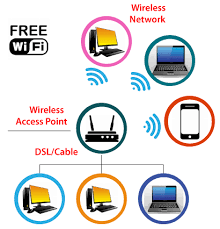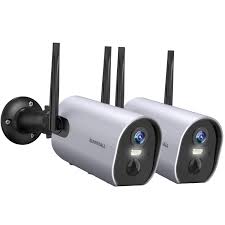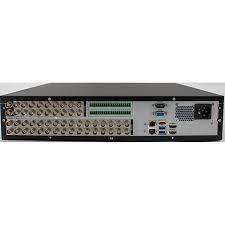Wi-Fi Network: A Gateway to Seamless Connectivity
In today’s digital age, a reliable Wi-Fi network has become an essential component of our daily lives. Whether at home, in the office, or in public spaces, the convenience of wireless internet connectivity has revolutionized how we stay connected and productive.
Wi-Fi, short for Wireless Fidelity, enables devices such as smartphones, laptops, tablets, and smart home gadgets to connect to the internet without the need for physical cables. This wireless technology uses radio waves to transmit data between devices and a router, providing users with the flexibility to move around freely while staying online.
One of the key advantages of a Wi-Fi network is its ability to create a local area network (LAN) that allows multiple devices within its range to share internet access. This means that family members can stream videos on their devices simultaneously, colleagues can collaborate on projects in real-time, and customers can enjoy seamless connectivity in cafes and public spaces.
Setting up a Wi-Fi network involves installing a wireless router that acts as the central hub for transmitting data to and from connected devices. The router receives data from the internet service provider (ISP) through a wired connection and broadcasts it wirelessly using radio signals. Users can then connect their devices to the Wi-Fi network by entering a password provided by the router’s administrator.
With advancements in technology, modern Wi-Fi networks support high-speed connections that allow for smooth streaming of HD videos, online gaming, video conferencing, and other bandwidth-intensive activities. Dual-band routers offer both 2.4 GHz and 5 GHz frequencies, providing users with options to connect older devices that support only 2.4 GHz or newer devices that benefit from faster speeds on the 5 GHz band.
Security is another crucial aspect of Wi-Fi networks. To protect sensitive data and prevent unauthorized access, it is recommended to set up strong encryption protocols such as WPA2 (Wi-Fi Protected Access 2) or WPA3 along with unique passwords for network access. Additionally, features like guest networks and MAC address filtering offer additional layers of security for users.
In conclusion, Wi-Fi networks have transformed how we connect to the digital world by offering fast, reliable, and convenient internet access across various environments. As technology continues to evolve, embracing the benefits of a robust Wi-Fi network ensures seamless connectivity for both personal and professional endeavors.
9 Essential Tips to Optimize and Secure Your Wifi Network
- Place your router in a central location for better coverage.
- Secure your wifi network with a strong password to prevent unauthorized access.
- Regularly update your router’s firmware to ensure optimal performance and security.
- Avoid placing your router near electronic devices that may cause interference.
- Use WPA3 encryption for enhanced security of your wifi network.
- Create a separate guest network to keep your main network secure.
- Limit the number of devices connected to your wifi to avoid congestion and slowdowns.
- Consider using wifi extenders or mesh systems for larger homes or areas with poor coverage.
- Monitor your network activity and set up parental controls if needed.
Place your router in a central location for better coverage.
For optimal Wi-Fi coverage, it is advisable to position your router in a central location within your home or office. Placing the router centrally helps ensure that the wireless signal can reach all areas of the space more effectively, minimizing dead zones and improving connectivity throughout. By strategically locating the router away from walls and obstructions, you can enhance signal strength and provide a more consistent internet experience for all connected devices. Remember, the placement of your router plays a significant role in maximizing Wi-Fi coverage and performance.
Secure your wifi network with a strong password to prevent unauthorized access.
Protect your Wi-Fi network by setting up a strong password to safeguard against unauthorized access. A secure password acts as the first line of defense, preventing potential intruders from infiltrating your network and compromising sensitive data. By choosing a combination of uppercase and lowercase letters, numbers, and special characters, you can create a robust barrier that enhances the security of your Wi-Fi connection. Regularly updating your password and avoiding easily guessable phrases further fortify your network’s defenses, ensuring peace of mind and uninterrupted connectivity for all your devices.
Regularly update your router’s firmware to ensure optimal performance and security.
Regularly updating your router’s firmware is crucial to maintaining optimal performance and security of your Wi-Fi network. Firmware updates often include bug fixes, security patches, and performance enhancements that help safeguard your network against potential vulnerabilities and ensure smooth operation. By staying up-to-date with the latest firmware releases provided by the router manufacturer, you can enhance the stability, speed, and security of your Wi-Fi network, ultimately providing a reliable and secure internet connection for all your connected devices.
Avoid placing your router near electronic devices that may cause interference.
When setting up your Wi-Fi network, it is crucial to avoid placing your router near electronic devices that may cause interference. Electronic devices such as microwaves, cordless phones, and Bluetooth speakers emit signals that can disrupt the Wi-Fi signal and degrade network performance. By keeping your router away from such interference sources, you can ensure a stable and reliable connection for all your wireless devices, allowing you to enjoy seamless connectivity without interruptions.
Use WPA3 encryption for enhanced security of your wifi network.
Enhance the security of your Wi-Fi network by utilizing WPA3 encryption, a robust protocol designed to safeguard your data and prevent unauthorized access. WPA3 offers advanced security features that make it significantly more difficult for cyber threats to compromise your network, providing peace of mind knowing that your internet connection is well-protected. By implementing WPA3 encryption, you can ensure that your Wi-Fi network remains secure and your sensitive information stays safe from potential cyber attacks.
Create a separate guest network to keep your main network secure.
Creating a separate guest network is a smart tip to enhance the security of your main Wi-Fi network. By setting up a dedicated network for guests, you can prevent unauthorized users from gaining access to sensitive data or devices connected to your primary network. This segregation helps maintain the integrity of your personal information and ensures that visitors can enjoy internet access without compromising the security of your main network. Implementing this precautionary measure adds an extra layer of protection and peace of mind for both you and your guests.
Limit the number of devices connected to your wifi to avoid congestion and slowdowns.
To optimize the performance of your Wi-Fi network, it is advisable to limit the number of devices connected simultaneously. By reducing congestion and preventing bandwidth overload, you can ensure a smoother and more stable connection for all connected devices. Limiting the number of connected devices helps prevent slowdowns and ensures that each device receives sufficient bandwidth to function efficiently. This proactive approach can enhance the overall browsing experience, streaming quality, and responsiveness of your Wi-Fi network, ultimately improving productivity and user satisfaction.
Consider using wifi extenders or mesh systems for larger homes or areas with poor coverage.
For larger homes or areas with poor Wi-Fi coverage, it is advisable to consider using Wi-Fi extenders or mesh systems to enhance network connectivity. Wi-Fi extenders, also known as boosters or repeaters, amplify the existing signal from the router and rebroadcast it to reach areas with weak coverage. On the other hand, mesh systems consist of multiple nodes placed strategically throughout the space to create a seamless network that eliminates dead zones and ensures consistent signal strength. By incorporating these solutions, users can enjoy improved internet performance and connectivity across their entire home or office space.
Monitor your network activity and set up parental controls if needed.
Monitoring your network activity and setting up parental controls, if needed, are essential tips for maintaining a secure and family-friendly Wi-Fi network. By keeping an eye on the devices connected to your network and the data being transmitted, you can detect any suspicious activity or unauthorized access. Parental controls allow you to manage and restrict the online content accessible to children, ensuring a safe browsing experience. Taking proactive measures to monitor network activity and implement parental controls not only enhances security but also promotes a healthy digital environment for all users.




